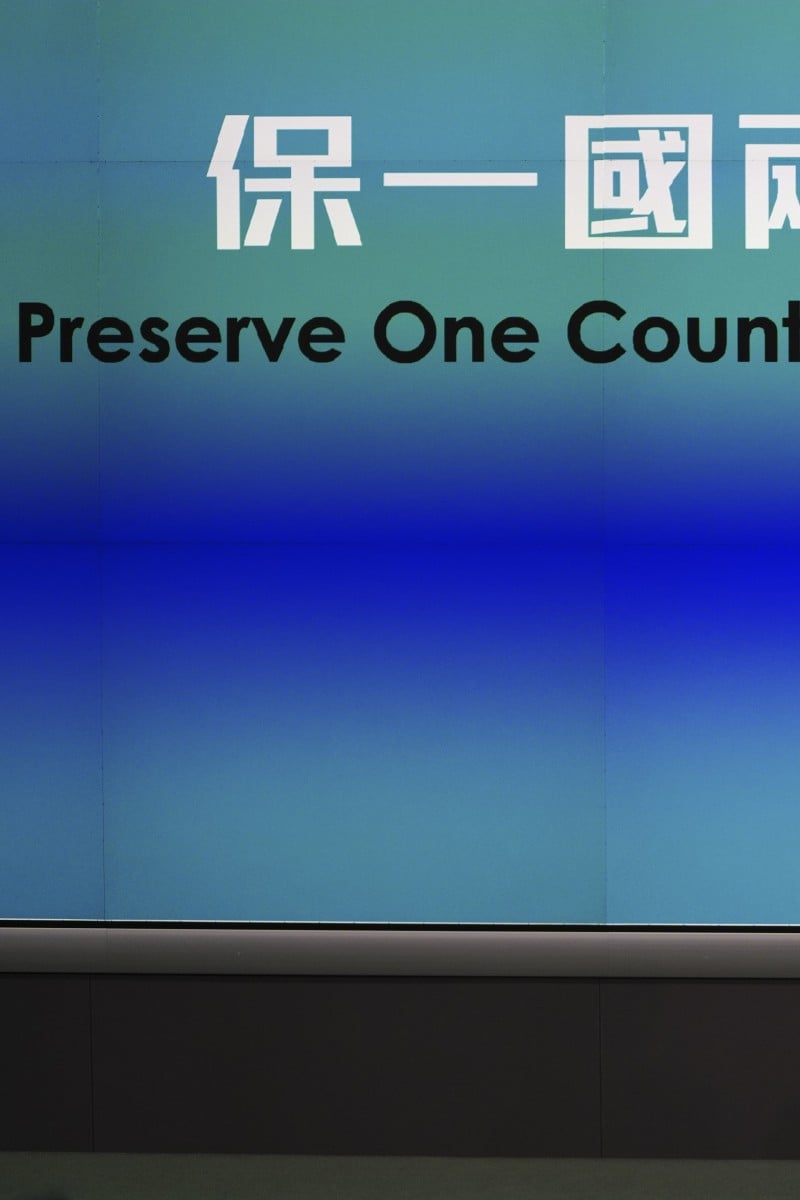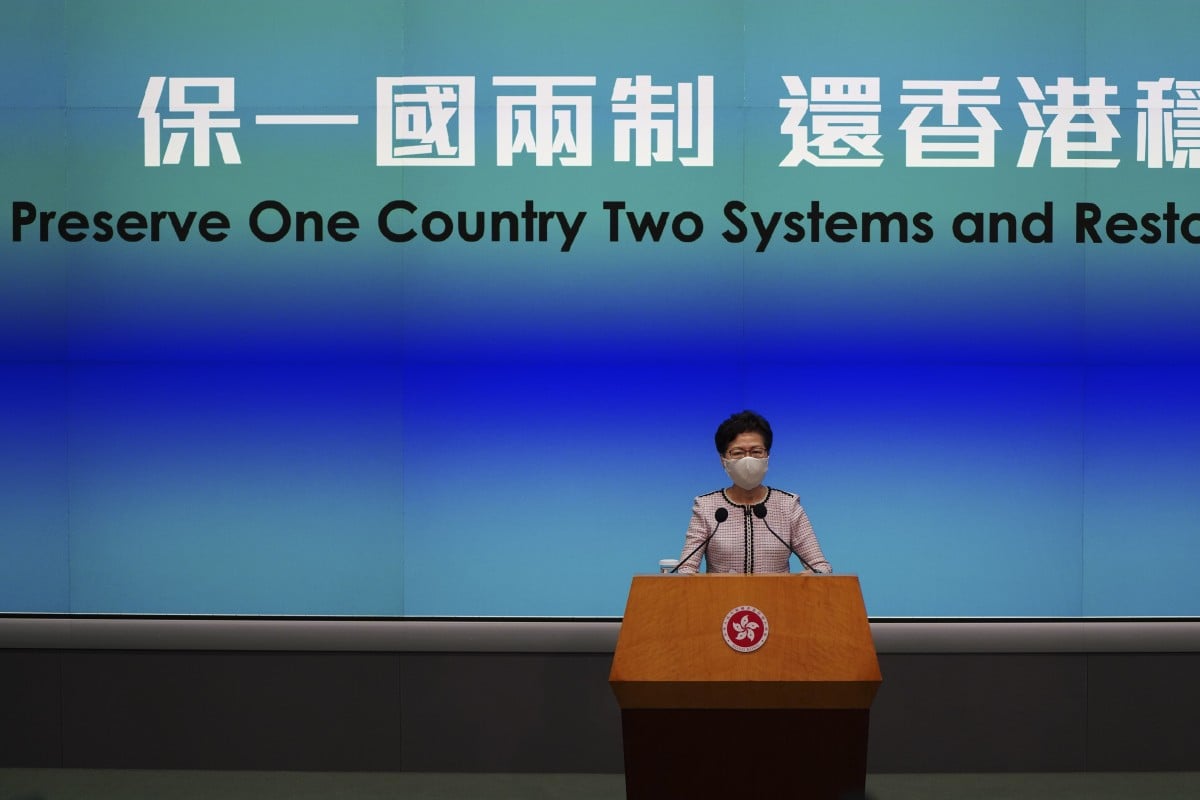
National security law: Hong Kong journalist associations express concern over press freedom as proposed legislation nears passage
- Foreign Correspondents’ Club delivers open letter to Chief Executive Carrie Lam seeking clarification of how the law would impact journalists
- Hong Kong Journalists Association submits letter to Standing Committee of the National People’s Congress to express their opposition to the law
 Hong Kong Chief Executive Carrie Lam Cheng Yuet-ngor reacts on the press briefing at the Central Government Offices in Tamar before the Executive Council meeting. 23JUN20 SCMP / Robert Ng
Hong Kong Chief Executive Carrie Lam Cheng Yuet-ngor reacts on the press briefing at the Central Government Offices in Tamar before the Executive Council meeting. 23JUN20 SCMP / Robert NgMedia organisations in Hong Kong, including the Foreign Correspondents’ Club (FCC) and Hong Kong Journalists Association (HKJA) have expressed concern over the upcoming National Security Law, stating that it might affect freedom of the press in the city.
The Foreign Correspondents’ Club delivered an open letter to Chief Executive Carrie Lam Cheng Yuet-ngor on June 24, seeking clarification on how the law will impact foreign journalists in the city.
“We are concerned that the new law will curtail the ability of journalists to report freely about Hong Kong and mainland China, as is our right under Article 27 of the Basic Law,” they wrote.
Secretary for Education says students should not protest national security law
They also presented the government with a list of 11 requests to uphold press freedom in the Special Administrative Region, such as not introducing a press registration system for journalists and not using the visa systems to restrict foreign correspondents from working in Hong Kong.
Previously on June 18, the Hong Kong Journalists Association (HKJA)released the results of a survey of its members which found 98 per cent of 150 respondents objected to the law and believed it would further erode press freedom and worsen media self-censorship.
Victor Mallet, First Vice-President of the Foreign Correspondents’ Club (FCC) and Financial Times’ Asia News Editor, who was denied a renewal of his work visa without given any reason as to why. Photo: SCMP / Edmond So
The HKJA submitted a letter to the Standing Committee of the National People’s Congress to express their opposition.
“Freedom of expression, freedom of the press and freedom of publication are the cornerstones of success for Hong Kong as an international city. They are under the protection of Basic Law.” they wrote. “The enactment of the Hong Kong national security law is like having a knife hanging over the heads of Hong Kong people. It will pose a threat, both in substantive and psychological terms, to journalists, worsening the problem of self-censorship and(forcing journalists to conduct) second-guessing of political bottom line.”
Hong Kong university heads release statement saying they ‘understand’ new national security law
The local government has repeatedly defended the law, saying it would not affect the legitimate rights and freedoms of Hong Kong residents and would target only a small minority. However, officials including the Chief Executive, Secretary for Justice Teresa Cheng Yeuk-wah and Secretary for Security John Lee Ka-chiu have also admitted they have not been given access to the drafts of the proposed natural law.
